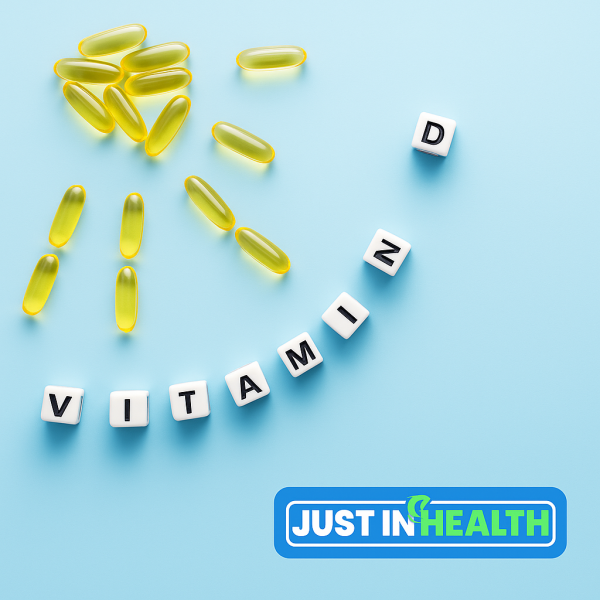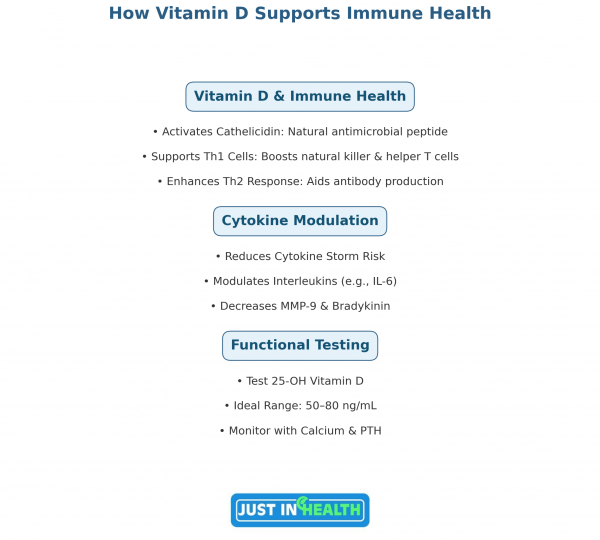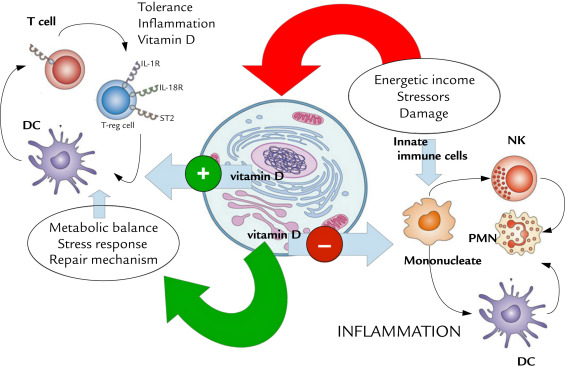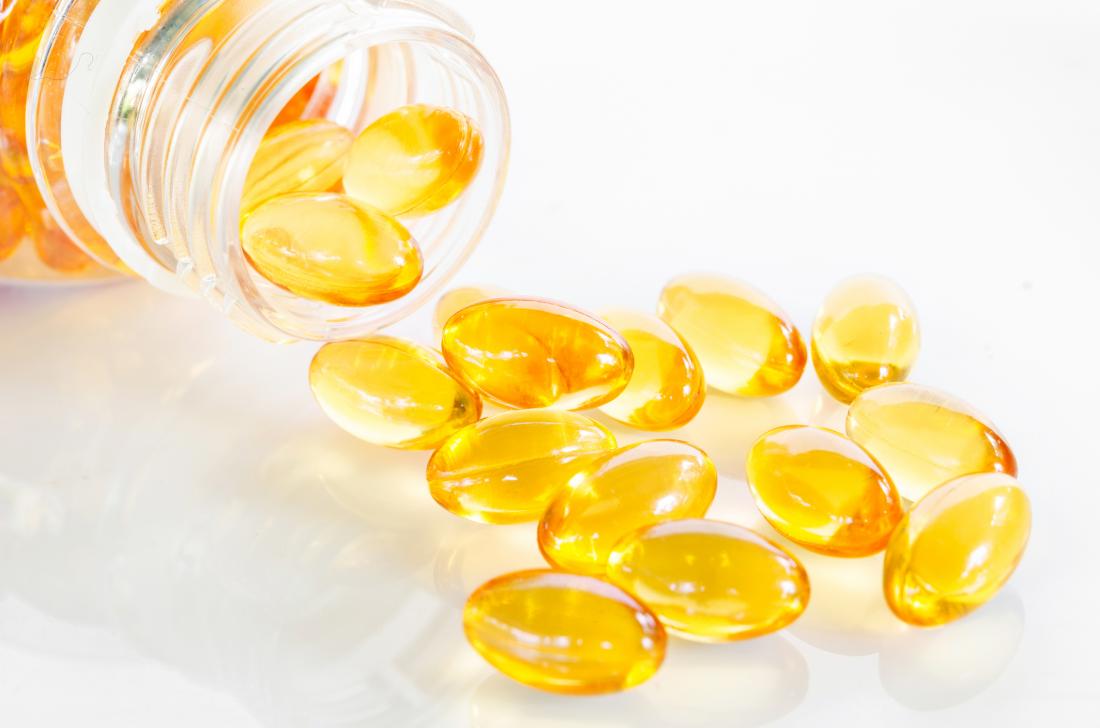

Vitamin D is often called the “sunshine vitamin,” but its benefits go far beyond bone health. In functional medicine, we recognize vitamin D as a key immune modulator that plays a vital role in defending the body against infections, reducing inflammation, and supporting overall immune balance.
Whether you're trying to avoid illness during flu season, lower chronic inflammation, or recover more effectively from infection, vitamin D is a powerful, low-cost tool you shouldn't ignore.
👉 Want personalized advice on Vitamin D testing or dosing? Schedule a FREE consult with Dr. J at www.justinhealth.com/free-consult

Vitamin D stimulates the production of cathelicidin, a natural antimicrobial peptide that acts like a built-in antibiotic in your immune system. It helps kill bacteria, viruses, and other pathogens before they become a serious issue.
🧪 Cathelicidin is especially helpful in the lungs, respiratory tract, and mucous membranes—your first line of defense during infections.

Vitamin D helps regulate both the Th1 and Th2 branches of your immune system:
Th1 Response: Boosts natural killer (NK) cells and helper T cells—your early infection responders.
Th2 Response: Helps create antibodies for long-term immunity and effective memory of pathogens.
This means that vitamin D helps you fight infections quickly and helps your body remember how to fight them again in the future.

When your immune system goes into overdrive, it can trigger a cytokine storm—a massive release of inflammatory chemical messengers like:
Cytokines
Bradykinin
MMP-9 (Matrix Metalloproteinase-9)
Interleukins (e.g., IL-6)
Vitamin D helps modulate these inflammatory signals. This is especially important in preventing complications during viral infections, where an unchecked immune response can do more harm than good.
💥 Think of it like two people shouting and escalating into a fight. Vitamin D helps keep the shouting from turning into punches.

| Benefit | Description |
|---|---|
| Antibacterial | Stimulates cathelicidin and antimicrobial peptides |
| Antiviral | Enhances immune surveillance and viral clearance |
| Immune Balance | Boosts Th1/Th2 response for infection control and antibody production |
| Inflammation Control | Reduces cytokine storms and inflammatory markers like MMP-9 and bradykinin |
| Autoimmune Support | Helps prevent the overactivation of the immune system in autoimmune diseases |
In our clinic, we never guess—we test. Optimal vitamin D levels are typically between 50 and 80 ng/mL, depending on your immune needs, autoimmune status, and sun exposure.
25-Hydroxy Vitamin D (25-OH D3)
Parathyroid Hormone (PTH)
Calcium levels (to monitor vitamin D safety)
DHEA, cortisol, and other immune markers for context
👉 Need help testing or interpreting your results? Schedule a free consult at www.justinhealth.com/free-consult
If you don't live in a sunny, equatorial region year-round, you likely need to supplement—especially during the winter months.
Supplement from Thanksgiving to Spring.
This ensures you're protected when sunlight exposure is lowest and immune threats are highest.
Vitamin D is fat-soluble, meaning it’s stored in your tissues. Supplementing for 4–5 months during the winter can sustain your levels even through the spring and early summer.
Most adults: 2,000 – 5,000 IU/day with food
Deficient individuals: 10,000 IU/day for 6–8 weeks, then retest
With K2 (MK-7): Always combine with Vitamin K2 to avoid calcium buildup in arteries
⚠️ Always retest every 3–6 months and work with a practitioner for personalized guidance.
Vitamin D and immune function
https://pubmed.ncbi.nlm.nih.gov/29073654
→ Highlights vitamin D's modulation of innate and adaptive immunity.
Vitamin D’s role in antimicrobial peptide expression (cathelicidin)
https://pubmed.ncbi.nlm.nih.gov/17604204
→ Vitamin D directly stimulates the production of cathelicidin, an antimicrobial peptide.
Vitamin D and cytokine storm
https://pubmed.ncbi.nlm.nih.gov/32668894
→ Explores how vitamin D reduces inflammatory cytokines and the risk of immune overactivation.
Vitamin D deficiency and risk of infection
https://pubmed.ncbi.nlm.nih.gov/30312457
→ Vitamin D deficiency is correlated with higher infection susceptibility.
Vitamin D is more than just a nutrient—it’s a cornerstone of immune resilience and inflammation control. Whether you're dealing with autoimmune issues, frequent infections, or chronic inflammation, optimizing your vitamin D level is one of the simplest and most effective strategies.
👉 Don’t guess—test. Then supplement smart.
👉 Ready to take control of your immune health? Book your FREE consult with Dr. Justin Marchegiani at www.justinhealth.com/free-consult
====================
Recommended Products